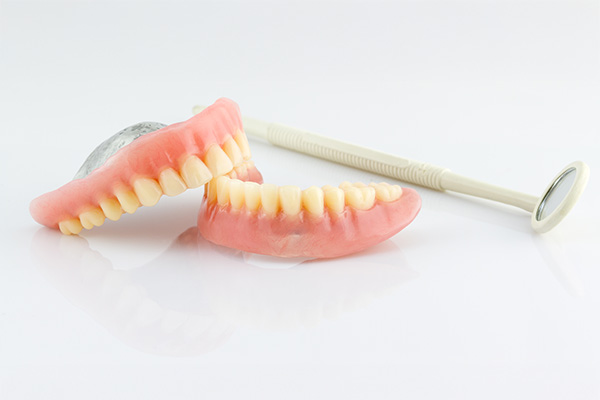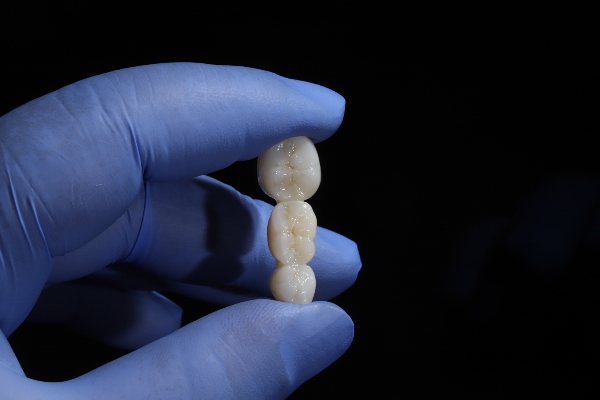How Denture Adjustments Can Help With Sore Spots

Sore spots in your mouth may be a sign that it is time for denture adjustments. Sores on your gums should not be an expected part of wearing dentures. In fact, the sores may indicate that your dentures are damaged or do not fit properly. Sore spots are not only uncomfortable, but they can also cause damage to soft tissues in your mouth or lead to a gum infection. The issue will not resolve on its own if poorly fitting dentures are the cause.
Important things to know about poor-fitting dentures and sore spots
Properly fitted dentures should not create sores on the gums. Here is what patients need to know about the fit of their dentures and if it is time to make an appointment.
Should dentures be comfortable?
Yes, dentures should always be comfortable in a patient’s mouth. After getting dentures for the first time, the patient may experience slight soreness as their mouth adjusts to the unfamiliar dentures. However, this discomfort should fade. The patient should consult their dentist if soreness persists.
What causes sore spots on the gums?
When a pair of dentures is too loose, it tends to slide around on the gums instead of staying in place. The consistent rubbing can aggravate delicate soft tissues like the gums and cheeks, causing sores and tenderness.
Dentures that are too tight can also cause sore spots. The patient may struggle to fit them into their mouth. Forcing the dentures into place can scrape against the gums or damage the appliance.
What causes poor-fitting dentures?
Normal wear and tear will affect dentures over time. As the patient eats, drinks, and talks, the dentures will gradually wear down and no longer fit the mouth.
Damage to the dentures themselves can also cause an improper fit. If the dentures are cracked, they may feel loose or unstable in the mouth. It is essential to inspect dentures regularly for damage and seek appropriate denture repair when necessary. Finally, bone atrophy may be a potential cause of poor-fitting dentures.
How can denture adjustments help?
Dentists can adjust dentures to fit the patient’s mouth better. Regular denture adjustments are a normal part of proper denture care. During the appointment, the dentist will check the dentures for any damage or wear. They can check the fit of the dentures and the patient’s bite, then make adjustments to the dentures as necessary.
After the adjustment, the dentures should no longer feel too tight or too loose. They should feel snug and stay in place, no longer rubbing in a way that creates sores in the mouth.
We can help with denture adjustments
If you are experiencing discomfort or pain while wearing your dentures, your dentures may need to be adjusted to fit your mouth better. The problem will not resolve itself, and ignoring the sore spots may cause additional damage to your gums. Here at Sammamish Dental Center, we are happy to ensure that your dentures are properly fitted. If you need denture adjustments, reach out to schedule an appointment at our Issaquah office.
Request an appointment here: https://www.sammamishdentalcenter.com or call Sammamish Dental Center at (425) 340-3113 for an appointment in our Issaquah office.
Check out what others are saying about our dental services on Yelp: Denture Adjustments and Repairs in Issaquah, WA.
Related Posts
Learning more about your options for getting new dentures is necessary, as you need to make a choice that works for you. This requires thinking about your current lifestyle and how denture care will fit in. Denture care is very important, as when you take proper care of your dentures, they can last many years.Finding…
A dental bridge is a tooth replacement option that does not require incisions to be made into the gums. However, there are many different types of dental bridges, and finding the perfect one can feel overwhelming. While your dentist will usually recommend what they think is best, it can be helpful to know the available…
A dental bridge is a reliable and effective solution for replacing a single missing tooth. Losing a tooth can impact a smile's functionality and appearance, but this treatment restores those elements with ease. A dental bridge enhances oral health and confidence by filling the gap left by a missing tooth.A dental bridge replaces a missing…
Losing a tooth can affect more than just your smile; it can also impact how you eat, speak, and maintain oral health. Dental bridges are a popular and effective solution for filling gaps left by missing teeth. By understanding the different types of dental bridges, you can work with a general dentist to find the…


